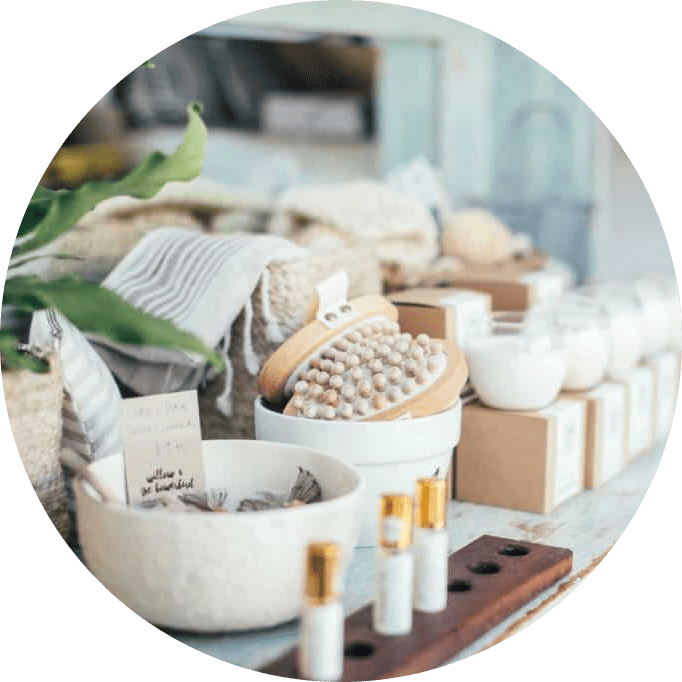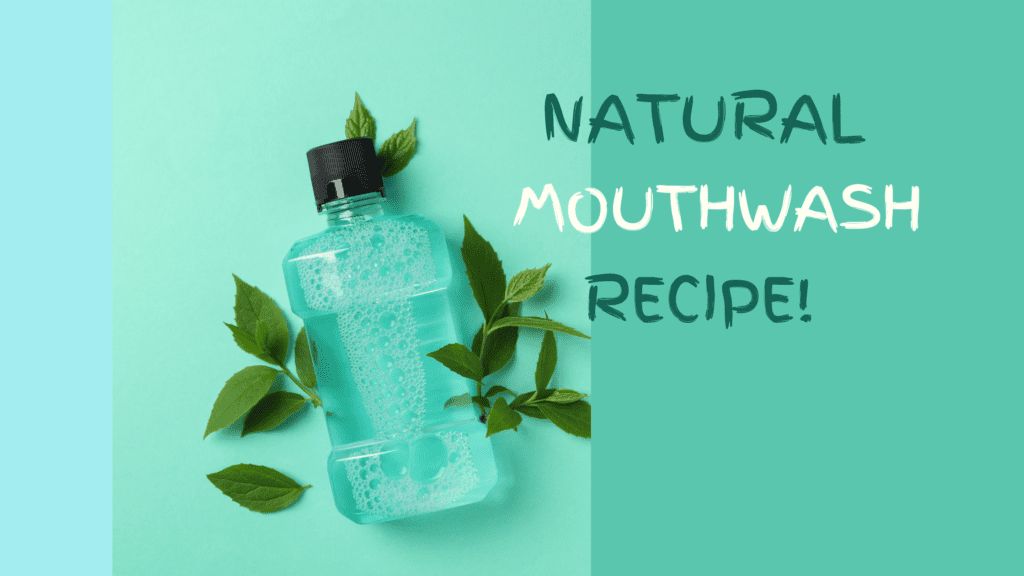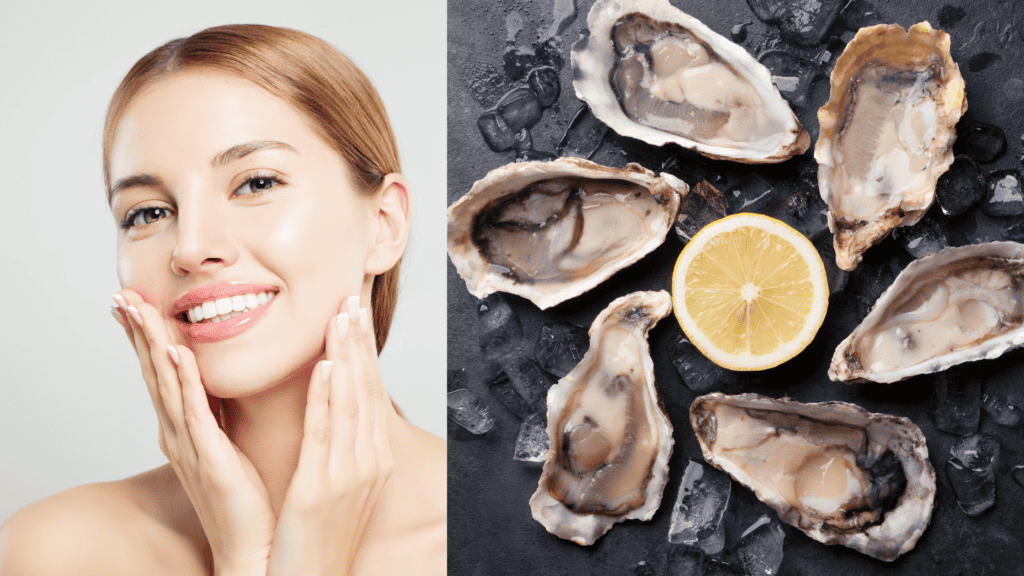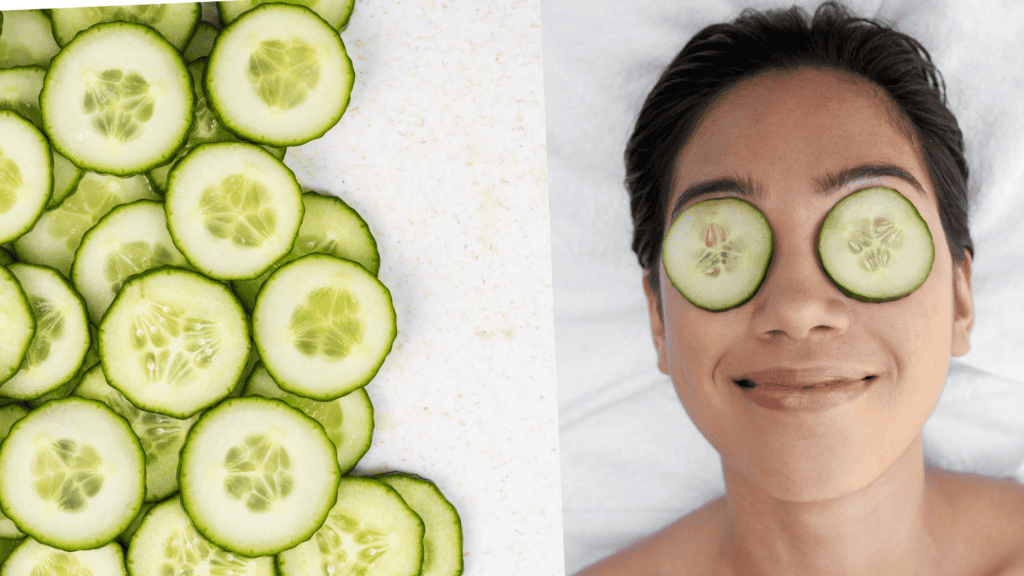Mouthwash is one of those things that many of us don’t think twice about. We buy it at the store, use it, and move on with our day. However, it is easy to make a natural mouthwash at home, and there are plenty of reasons to ditch the store-bought stuff and start making your own:
1. You know exactly what’s in it. When you make your mouthwash, you know exactly what ingredients are going into it. This is important because many commercial types of mouthwash contain harsh chemicals that irritate your mouth and throat.
2. It’s more affordable. Making your mouthwash is much cheaper than buying it at the store. Plus, you can make a large batch that will last you for weeks or even months!
3. It’s more gentle. Because you’re in control of the ingredients, you can make a much milder mouthwash on your mouth and throat. This is especially important if you have sensitive skin or if you suffer from allergies.
4. You can customize it. One of the best things about making homemade mouthwash is that you can customize it to your liking. For example, you can add essential oils for a refreshing and unique flavor.
5. It’s eco-friendly. When you make your mouthwash, you’re not creating any waste. Commercial mouthwashes come in single-use plastic bottles that end up in landfills. But when you make your own, you can recycle or reuse the bottle!
Here is an easy recipe to make homemade mouthwash; feel free to customize it to suit your taste!
Natural Homemade Mouthwash Recipe!
Ingredients.
- I cup of Distilled water.
- 1/2 cup Aloe Vera Juice
- 4-5 Cloves
- 2 TBSP Baking Soda
- Five drops of food-grade Peppermint essential oil
- Two drops of food-grade Cinnamon essential oil
- Two drops of food-grade Tea Tree oil
- Two drops of food-grade Clove essential oil.
- 1/2 tsp of Xylitol
- 1 tsp Pink Himalayan salt.
You Will Need.
Directions.
- Heat the distilled water and the 4-5 cloves in a small saucepan to a simmer. Bring the water almost to a boil, turn off the heat, and let the water cool down. Remove the cloves.
- Add the baking soda, xylitol, and pink salt to the warm water, stirring to dissolve.
- Using a funnel in the mouth of the glass bottle, pour in the distilled water and Aloe vera juice.
- Add in the essential oils. You can substitute essential oils you prefer, but ensure they are food grade.
And there you have it, homemade natural mouthwash. Please keep it in the fridge and use it twice daily to keep your mouth healthy, teeth whiter, and breath fresh!
The Best Ingredients For Homemade Mouthwashes.
Distilled Water.
Distilled water is water that has been boiled and then condensed back into a liquid. This process removes impurities and minerals from the water, leaving behind only pure water. While any water can technically be used as a mouthwash, distilled water is the best choice because it is free of impurities and contaminants.
Distilled water won’t irritate your mouth or cause unwanted side effects; it is more effective at killing bacteria than tap water because the distillation removes all the minerals and other particles that can protect bacteria from being killed by water.
If you’re looking for a mouthwash that will benefit you, distilled water is the way to go. It’s gentle on your teeth and gums and keeps your breath fresh! In addition, distilled water has a higher pH than tap water, so it’s more effective at neutralizing the acids in your mouth that can cause cavities.
Aloe Vera Juice.
Aloe vera juice has been used for centuries as a natural remedy for various ailments. The juice is derived from the aloe vera plant, which is native to Africa and has been used for its medicinal properties for centuries.
Aloe vera juice has a variety of benefits when used as a mouthwash. The juice of the aloe can help soothe the throat and mouth and reduce inflammation. Also, aloe vera juice is a natural antiseptic and can help kill bacteria and viruses, which can help prevent infections in the mouth. It also helps with whitening the teeth through gentle stain-removing properties.
Cloves.
Cloves are a fantastic ingredient for mouthwashes or toothpaste as they are a natural anti-microbial and can fight bacteria and improve oral health. Cloves are a rich source of antioxidants and have anti-inflammatory and antibacterial properties.
As well as reducing gum inflammation and odor-causing bacteria, the eugenol in cloves numbs the nerves and relieves tooth pain.
Cloves’ scent can help freshen your breath, and their natural antioxidant properties also help whiten your teeth by removing stains!
Baking Soda.
Baking soda is a natural disinfectant that kills bacteria in your mouth, preventing cavities and gum disease. There are many benefits of using baking soda in mouthwash. It helps remove plaque and tartar from your teeth, freshens your breath, and keeps your gums healthy.
Another benefit of using baking soda in mouthwash is that it can help neutralize acids in your mouth, which can be helpful if you suffer from acid reflux or heartburn.
Finally, baking soda can help to whiten your teeth. If you have stained or yellowed teeth, using mouthwash with baking soda can help to brighten them up.
Xylitol.
Xylitol is a sugar alcohol that is derived from plants, and it has several benefits when it comes to oral health. It is a natural sweetener, so it can help to sweeten your mouthwash, and it has been shown to reduce plaque and bacteria in the mouth. This can lead to fresher breath and healthier gums.
Xylitol can help to reduce the risk of cavities by reducing the amount of acid in the mouth, which can lead to cavities; plus, it is a good source of antioxidants, helping to protect teeth from damage caused by free radicals.
Finally, xylitol is an excellent and safer alternative to fluoride. Fluoride can be beneficial for oral health and dangerous if ingested in large quantities. So if you are looking for an alternative to fluoride, or if you are looking for a natural sweetener for your mouthwash, xylitol is an excellent choice for you.
Salt.
Salt has been used in beauty and cosmetics for centuries, dating back to ancient times. Salt for beauty and cosmetic purposes is thought to have originated in Egypt, where it was used to cleanse the skin and hair.
More recently, salt has been used in various beauty and cosmetic products, such as scrubs, soaps, and facial masks. It is also used in many kinds of toothpaste and mouthwash products.
Salt has many benefits as an ingredient in natural mouthwash; it helps balance the pH levels in the mouth and is a natural disinfectant that kills bacteria and other microorganisms in the mouth that can cause bad breath. Salt is also a natural exfoliant. It can help to remove plaque and tartar from your teeth.
The anti-inflammatory properties of salt can also help to reduce swelling and inflammation in your gums. Salt is also a natural astringent that can make your mouth fresher; it helps neutralize acids, preventing tooth decay.
Make sure to use a good quality salt that contains all its natural minerals. Read this post for examples of gourmet salts that can be used in food and beauty recipes.
Essential Oils.
Essential oils are a powerful tool for oral health and have excellent benefits for bad breath. They can help fight bacteria and fungi, and they can also help soothe irritated gums. And, because they’re natural, they’re gentle on the mouth and safe to use daily. Many different essential oils can be used for mouthwash, but some of the best ones include:
Peppermint oil: Peppermint oil is one of the most popular essential oils for mouthwash. It has a refreshing, minty taste that can help to freshen your breath. Peppermint oil is also antibacterial and can help to kill the bacteria that cause plaque and gum disease.
Tea tree oil: Tea tree oil is another popular essential oil for mouthwash. It’s known for its ability to fight bacteria and fungi. Tea tree oil can also help to soothe your throat and freshen your breath.
Clove oil: Clove oil is a fantastic essential oil for mouthwash. It has a spicy, woodsy taste that can help to freshen your breath. Clove oil is also antibacterial and can help to kill the bacteria that cause plaque and gum disease.
Cinnamon oil: Cinnamon oil has a strong, fresh, and spicy scent that can help to freshen your breath. It can help to fight gum disease by killing the bacteria that cause it. Cinnamon essential oil also helps to remove stains from your teeth and make them look brighter and whiter!
These are just a few of the best essential oils you can use for mouthwash. Each one of these oils has unique benefits. So, try a few different ones and see which works best for you!
Read this for more tips on relieving bad breath naturally, or try these Ayurvedic dental practices!
This post contains affiliate links. We may earn a small commission if you purchase using these links, not affecting your sales.
Glowitgreen.com is a member of the Amazon affiliate program.




